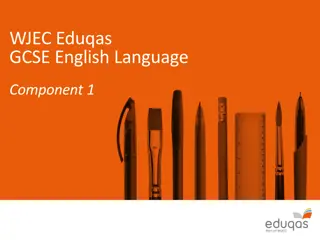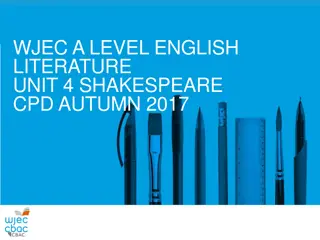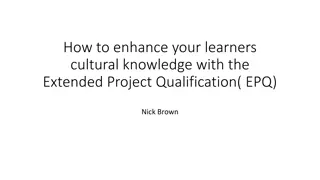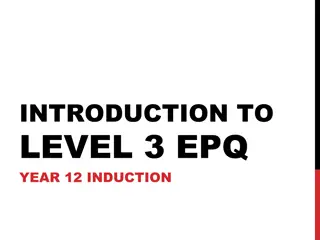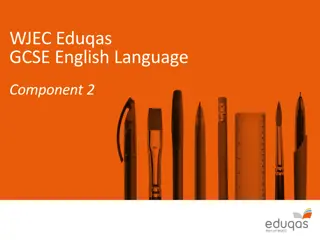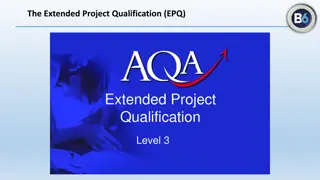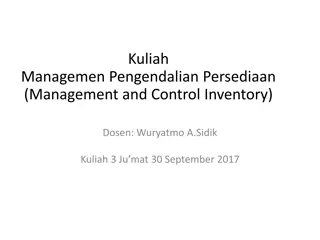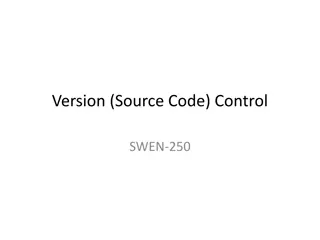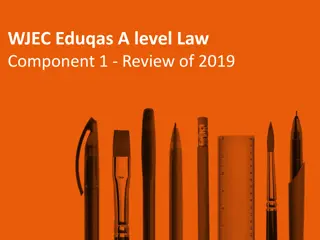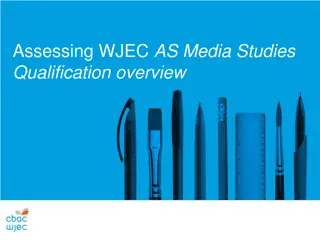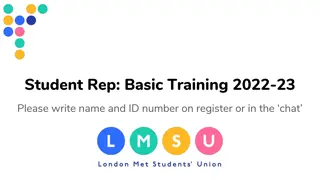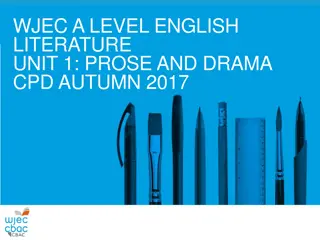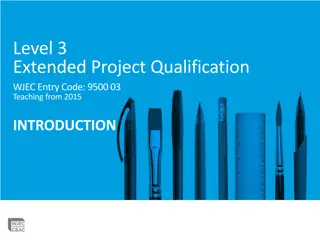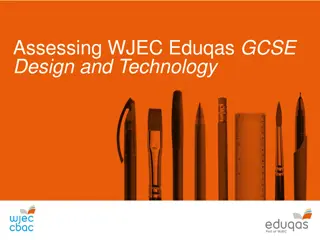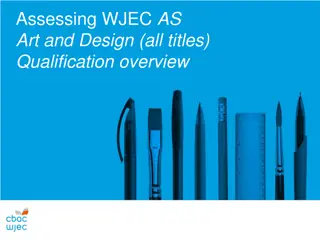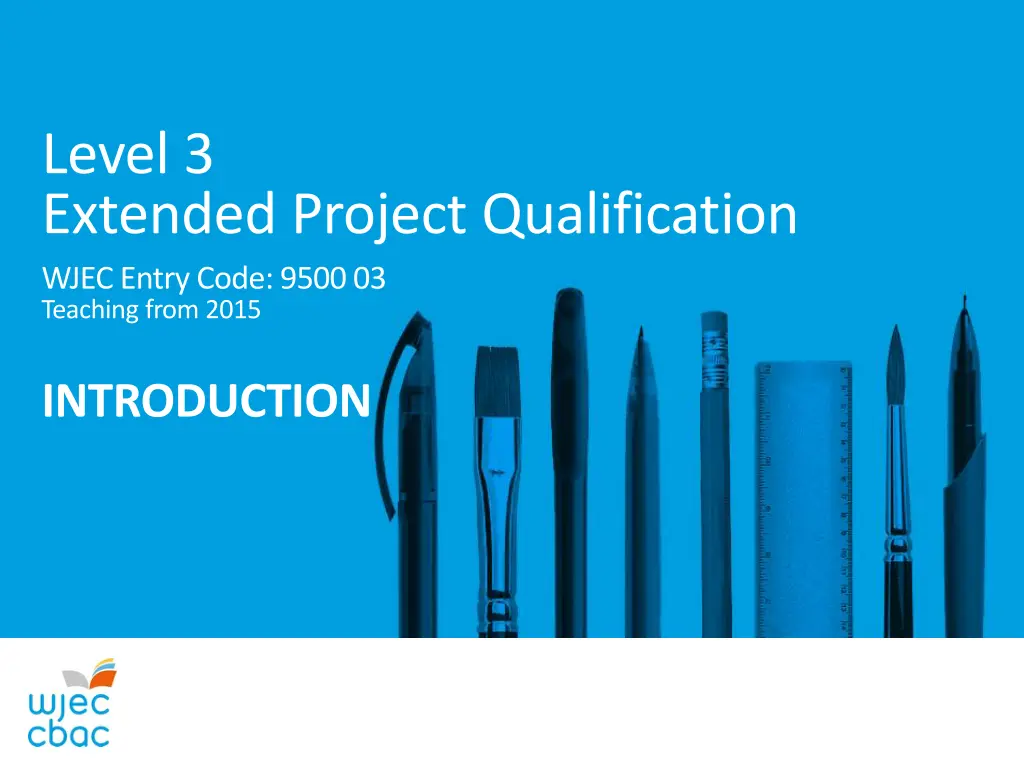
Mastering Level 3 EPQ Course
Explore the Level 3 Extended Project Qualification (EPQ) course from WJEC with a focus on decision-making, research, planning, critical thinking, and project presentation. Understand the objectives, requirements, and benefits of completing an EPQ, whether through a dissertation or an artefact. Develop essential skills in effective research, organization, problem-solving, and data analysis while enhancing presentation and reflection abilities.
Download Presentation

Please find below an Image/Link to download the presentation.
The content on the website is provided AS IS for your information and personal use only. It may not be sold, licensed, or shared on other websites without obtaining consent from the author. If you encounter any issues during the download, it is possible that the publisher has removed the file from their server.
You are allowed to download the files provided on this website for personal or commercial use, subject to the condition that they are used lawfully. All files are the property of their respective owners.
The content on the website is provided AS IS for your information and personal use only. It may not be sold, licensed, or shared on other websites without obtaining consent from the author.
E N D
Presentation Transcript
Level 3 Extended Project Qualification WJEC Entry Code: 9500 03 Teaching from 2015 INTRODUCTION
Slides and course information 1. Log onto the school website 2. Find Sixth Form/EPQ/Student resources (blue button) 3. Save a copy of the first slides. This will be useful for your project. 4. Complete the starter quiz.
Summary of course Mixture of taught lessons with homework and IT lessons: 1. Introduction to the EPQ 2. Decision making: decide format and initial topic 3. Research: structure of EPQ; how to research effectively (literature review and referencing) 4. Effective planning and organisation; problem solving 5. Critical source handling and evaluation; data analysis, selection and synthesis 6. Writing your project 7. Getting high marks 8. Presentation and reflection skills
Objectives of today Students should be able to: Explain briefly what an EPQ involves Realise the commitment required Decide whether they will create an artefact or write a dissertation Start their MOOC Explain when the first deadline occurs
What do you have to do? Decide on a topic and produce a proposal and title Make an action plan, with milestones, deadlines and details of what you are going to do, why, how and when Keep a log: record your progress demonstrating what was learnt from the lessons, how research has been conducted, decisions made and problems solved. Produce a project outcome: a dissertation or investigation or an artefact Present your project and review the process
What will you learn? How to research effectively Effective planning and organisation Problem solving and decision making Critical source handling and evaluation Data analysis, selection and synthesis Presentation and reflection skills
Dissertation or artefact? A dissertation is a written piece of work (maximum 5,000 words) which answers a question. An artefact is a non- written project which aims to answer a question in a creative manner. Note that an artefact still requires a minimum of 1,500 words! Both a dissertation (written project outcome) and an artefact (non-written project) are equally valid The best artefacts have clear aims and objectives and are rooted explicitly in research
Examples of good artefacts To produce a scale model of a trebuchet for under 100 that is capable of throwing a tennis ball over ten metres. To manufacture a leather bomber jacket for under 100 using the school laser cutter. To write and produce a short film on the Syrian refugee crisis aimed at learners of sixth form age.
How do you get high marks? Most of the marks are for the process NOT the outcome. You will need to write up how you made decisions and so the activities and homeworks are useful for this! Later in the course we will look at marks in more detail. Copy EPQ Forms Written Project Outcome and/or EPQ Forms Non-written Project Outcome to the O drive. If you don t know which one it is best to copy the Written version first, you can change your mind later. These are saved on the school website under Admin and forms for the EPQ and then Forms
Deadlines You need to have agreed your project proposal with your supervisor and submitted it to your EPQ teacher by 4pm on Friday 28th September. This means you need to complete EPF1 These must be saved on the O drive. Mrs Wilson will then check them
MOOC (massive open online course) Log on to https://www.futurelearn.com/ Select View all course categories then Study skills Choose either Southampton University Developing your research project OR choose Bath University How to Succeed in Your EPQ: the Nuts and Bolts of Completing Your Project . Start this course now, you should aim to finish it over the next few weeks and you should include the details in your project.
Review of the lesson Fill in the first line on page 12 of the forms on the O drive (EPF2c). You must NOT write the same as anyone else. Make the box fit (i.e. delete rows if necessary).
Self study/homework 1. Complete the Getting an idea sheet and bring to your next EPQ lesson. It is on the school website under Sixth Form/EPQ/Student resources (blue button). This will form part of your project. 2. Continue with your chosen MOOC, you should complete it over the next three weeks https://www.futurelearn.com/ 3. Read the WJEC Student EPQ guide, saved under Admin and forms for the EPQ 4. Write your name on pages 1, 2 and 5 on your EPQ forms EPQ Forms Written Project Outcome and/or EPQ Forms Non-written Project Outcome which should be saved on the O drive. Check page 12 too (EPF2c)


